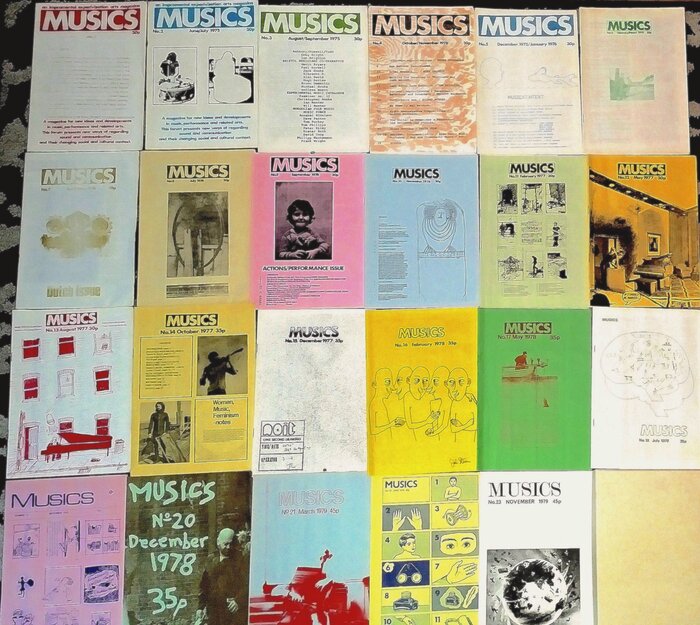Back to Category-Overview
Back to Category-Search
 0
0
Back to Category-Search
Musics
Year: 1975-1979
Country: United Kingdom
Format: Mag/Lit
Description:
Musics: A British Magazine of Improvised Music & Art
Musics was a music-related magazine that was published from 1975 to 1979.
In 1975 Derek Bailey, Steve Beresford, Max Boucher, Paul Burwell, Jack Cooke, Peter Cusack, Hugh Davies, Mandy and Martin Davidson,Richard Leigh, Evan Parker, John Russell, David Toop, Philipp Wachsmann and Colin Wood came together and agreed to produce a magazine.
It was independently published and dedicated to the coverage of FREE IMPROVISED MUSIC.Its need was suggested in a conversation between Evan Parker and Mandy and Martin Davidson.
The title was proposed by Paul Burwell at the first meeting in the Davidsons' house and unanimously adopted.
Musics, headquartered in London, has not been published since 1979
In 2016 the Ecstatic Peace Library published Musics: A British Magazine of Improvised Music & Art 1975–79,a facsimile reprint of all issues of the magazine with a foreword by Steve Beresford, an introduction by David Toop, and afterword by Thurston Moore. Eva Prinz and Thurston Moore hosted an exposition on the magazine and the book, covering it at the Red Gallery on Rivington Street in London in July 2017.
History and profile
Musics was launched with Issue No. 1 April/May 1975 with the banner "MUSICS an impromental experivisation arts magazine.
The journal was distributed in the UK and worldwide.
Mandy Davidson edited the first issue. Soon afterwards she moved to the US, and it was decided there would be no permanent editor. Max Boucher was appointed production editor. The 'editorial board' moved quickly towards becoming a collective. Each collective member contributed £4 to cover the costs of the first issue, which was run off on an A3 Gestetner duplicator. Issue no.2 was pasted up and printed by offset-litho. Over time the print run was increased and all income was ploughed back. Eventually it was possible to pay the printers (Islington Community Press) to make the plates and run off the copies. However collective members continued to do all the unpaid work of editing and preparing the camera ready artwork. No editors, writers, designers, or photographers were ever paid.
Limiting expenditure was only part of the financial model. From the beginning the Musics collective took the position that they would not accept paid advertising or grant aid, and the only income came from subscriptions and sales through (mostly alternative) bookshops. In addition there were associates in cities such as Bristol and Glasgow who sold copies through local outlets and at performances. In the final months there was an imminent financial crisis, but this was resolved through a successful jumble sale.
The policy of financial independence was copied from Libération, the French daily paper which had no paid ads. The two publications shared a vibrant pluralism, due to their freedom from the influence of advertisers or funding bodies. Musics and Libe were informally affiliated, as can be seen from occasional mutual references in archived copies. Both have a dynamic energy which radiates from the pages - in Musics perhaps almost reaching perfection. (Liberation later reverted to the standard model and it continues in name only.)
Musics came out six times a year, with occasional exceptions.
Musics proposed the destruction of artificial boundaries and linked jazz, the music of composers such as John Cage, and indigenous and non-European musics. It was significant in the discussion of traditional Asian instruments (Clive Bell) as paths of equal value for the performance of musics, a term that discarded the use of the word "jazz".
Early issue covered audio soundscape work, reviewing performance events from a cliff-top piano hurling festival or burning pianos, trap set improvisation against a rising sea tide that drowned cymbals and floated and retuned toms, or drummer Han Bennink's inclusion of saws and power tools in his percussion set. Electronics were explored as micro-environments at a level of equality with acoustic instruments in the precursors of glitch, such as the STEIM experiments with the cracklebox or the circuit board work of Hugh Davies (1943–2005), and an attack on the possibilities of brass instruments, notably by Steve Lacy and Evan Parker.
Lindsay Cooper in her essay Women, Music, Feminism – notes in Musics #14 (October 1977) analyzed how to overcome gender roles in music.
Tensions and unresolved contradictions accumulated. A small faction formed within the collective and soon un-democratically added to the artwork for the front cover of issue no.23 the words FINAL ISSUE.
(Info taken from Wikipedia)
 0
0Related Releases
A Raise Of An Eyebrow Rik Rue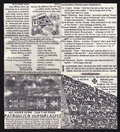 All Broke Down Cant Be Fixed
Patronized Humoplasms
All Broke Down Cant Be Fixed
Patronized Humoplasms Aspen Magazine No.8 Fall-Winter
La Monte Young / Jackson Mac Low
Aspen Magazine No.8 Fall-Winter
La Monte Young / Jackson Mac Low Bend An Ear
Rik Rue
Bend An Ear
Rik Rue Conapt 1
Various
Conapt 1
Various Danger In Paradise Album
General Strike
Danger In Paradise Album
General Strike Dub For St. Rita
Rik Rue
Dub For St. Rita
Rik RueEt Cetera Et Cetera Four Pieces Head Resonance
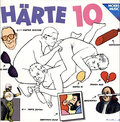 Härte 10
Härte 10
Härte 10
Härte 10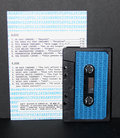 Insane Music For Insane People Vol. 16
Various
Journey to Harpistan
Rüdiger Oppermann
Insane Music For Insane People Vol. 16
Various
Journey to Harpistan
Rüdiger Oppermann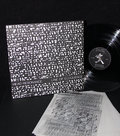 Line Of Eloquence
Head Resonance
Line Of Eloquence
Head Resonance Multiplays
Head Resonance
Multisonous Mottos
Rik Rue
Multiplays
Head Resonance
Multisonous Mottos
Rik Rue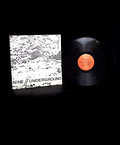 Nine//Underground
Various
Other Voices
Rik Rue
Nine//Underground
Various
Other Voices
Rik Rue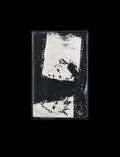 Other Voices
Rik Rue
Other Voices
Rik Rue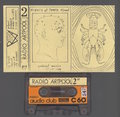 RADIO ARTPOOL No. 2 casette-radio, radio-work
Various
Radio Code
Fushitsusha
Rue L'Amour
Rik Rue
Sacrifice, The Best Of Mark Hanley 1981-8
Mark Hanley
Sea V.S. Land
Ian Hartley
RADIO ARTPOOL No. 2 casette-radio, radio-work
Various
Radio Code
Fushitsusha
Rue L'Amour
Rik Rue
Sacrifice, The Best Of Mark Hanley 1981-8
Mark Hanley
Sea V.S. Land
Ian Hartley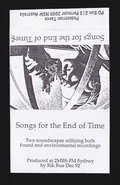 Songs for the End of Time
Rik Rue
Songs for the End of Time
Rik Rue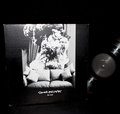 Sound Escapes
Rik Rue
Sound Escapes
Rik Rue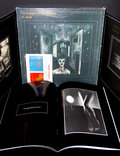 Trial By Intimacy (The Book Splendours)
Bill Nelson
Unlikely Stuff #1
Various
Trial By Intimacy (The Book Splendours)
Bill Nelson
Unlikely Stuff #1
Various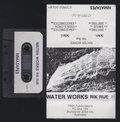 Water Works
Rik Rue
Water Works
Rik RueRelated Artists & Bands
Bill NelsonEt Cetera Härte 10Head ResonanceIan HartleyRik RueRüdiger OppermannRelated Artists & Bands Literature
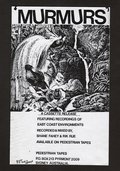 Murmurs Cassette Promo-Sheet
Rik Rue
Murmurs Cassette Promo-Sheet
Rik Rue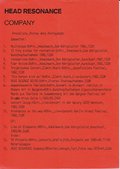 Tape Overview (Gerechtigkeit Liga and more)
Head Resonance
Tape Overview (Gerechtigkeit Liga and more)
Head Resonance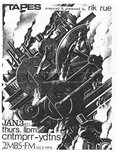 Tapes Flyer
Rik Rue
Tapes Flyer
Rik RueRelated Labels
Nur Nicht NurRelated Labels Persons
Stephen HillRelated Press & Organisations
MusicsRelated Press & Org Literature
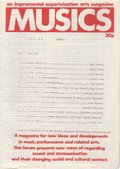 Musics 01 (April / May 1975)
Musics
Musics 01 (April / May 1975)
Musics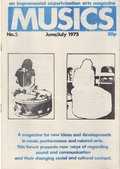 Musics 02 (June / July 1975)
Musics
Musics 02 (June / July 1975)
Musics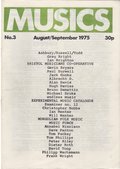 Musics 03 (August / September 1975)
Musics
Musics 03 (August / September 1975)
Musics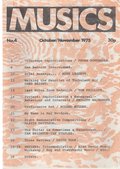 Musics 04 (October / November 1975)
Musics
Musics 04 (October / November 1975)
Musics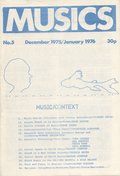 Musics 05 (December 1975 / January 1976)
Musics
Musics 05 (December 1975 / January 1976)
Musics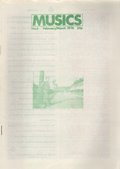 Musics 06 (February / March 1976)
Musics
Musics 06 (February / March 1976)
Musics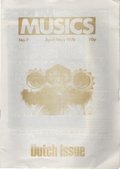 Musics 07 (April / May 1976)
Musics
Musics 07 (April / May 1976)
Musics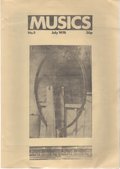 Musics 08 (July 1976)
Musics
Musics 08 (July 1976)
Musics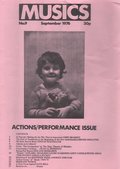 Musics 09 (September 1976)
Musics
Musics 09 (September 1976)
Musics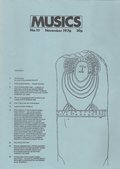 Musics 10 (November 1976)
Musics
Musics 10 (November 1976)
Musics Musics 11 (February 1977)
Musics
Musics 11 (February 1977)
Musics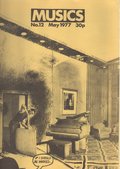 Musics 12 (May 1977)
Musics
Musics 12 (May 1977)
Musics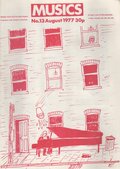 Musics 13 (August 1977)
Musics
Musics 13 (August 1977)
Musics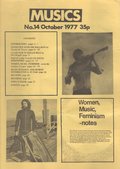 Musics 14 (October 1977)
Musics
Musics 14 (October 1977)
Musics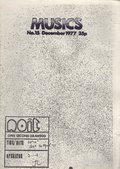 Musics 15 (December 1977)
Musics
Musics 15 (December 1977)
Musics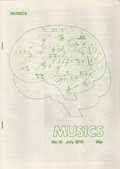 Musics 16 (February 1978)
Musics
Musics 16 (February 1978)
Musics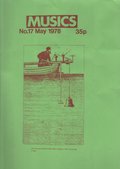 Musics 17 (March 1978)
Musics
Musics 17 (March 1978)
Musics Musics 18 (July 1978)
Musics
Musics 18 (July 1978)
Musics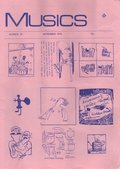 Musics 19 (September 1978)
Musics
Musics 19 (September 1978)
Musics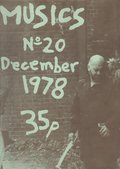 Musics 20 (December 1978)
Musics
Musics 20 (December 1978)
Musics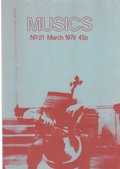 Musics 21 (March 1979)
Musics
Musics 21 (March 1979)
Musics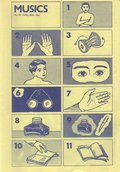 Musics 22 (June 1979)
Musics
Musics 22 (June 1979)
Musics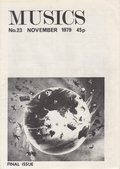 Musics 23 (November 1979)
Musics
Musics 23 (November 1979)
Musics
